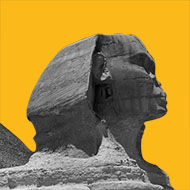 Of the several Asian and Middle Eastern Studies options taught by the Faculty at undergraduate level Univ offers two: Egyptology and Ancient Near Eastern Studies, and Chinese.
Of the several Asian and Middle Eastern Studies options taught by the Faculty at undergraduate level Univ offers two: Egyptology and Ancient Near Eastern Studies, and Chinese.
As a student studying Egyptology or Ancient Near Eastern Studies you have the option to approach the subject in a number of ways during their degree. The first year features introductory work in the cultures of Egypt or the Ancient Near East, to give you a basic grounding in the subject matter of the course, as well as introductory language teaching. In later years, there are a range of options as you go in further depth with historical and literary modules. Teaching is conducted through both intensive classes and artefact classes. Later in the degree you can choose to add either a second language or Archaeology and Anthropology modules.
Univ also offers the Oriental Studies course in Chinese. It is understood that many applicants will not have studied Chinese before, so you are able to learn the language from scratch while at Oxford. This encompasses study in both modern and classical Chinese as well as studies into Chinese History and culture. This study begins in first year and then continued in third and fourth year while in the second year of your course you will conduct a year’s study in Beijing at Peking University. Later in the degree you can tailor your course to suit your interests, for example by adding modules in other East Asian languages such as Korean, Japanese, Tibetan or even Sanskrit. Alternatively you can deepen your knowledge of China by taking one year options in modern literature, history, modern China and other subjects.
All Oriental Studies subjects typically have small intakes across the university. The College takes steps to ensure that students do not feel isolated. Tutors encourage inter-year collaboration so that students can learn good practice from their peers. Univ is located a short distance from the Ashmolean, where object handling classes are held, and just across the road from the dedicated Egyptology Library at Queen’s College. Univ also accepts students for Oriental Studies with Classics and Classics with Oriental studies (correct for entry 2018).
There is a wealth of information about the Oriental Studies course structure, possible option choices, and admissions criteria on the University of Oxford’s main website, available at ox.ac.uk
Any undergraduate degree at Oxford provides you with a wide variety of transferable skills and therefore Univ’s students progress to a diverse range of careers. For some, their undergraduate degree leads to academic research, industrial research or teaching. For many, their future career, for instance in business, government or the charitable sector, is defined less by the subject they studied and more by the skills they acquired. Oxford’s Careers Service provides destination statistics for graduates.
Resources
If you are considering applying for Oriental Studies, a number of resources you might find useful to explore beyond the school curriculum can be found on Univ’s Staircase12 pages, including the Reading Bank and Resource Hub.
A History of the World in 100 Objects is a radio programme, website and now also a book. Explore it at bbc.co.uk
The University of Oxford has some fantastic museums, including the Ashmolean, a museum of Art and Archaeology. Its online collection, includes objects from both Chinese and Egypt and the Ancient Near East, explore it at collections.ashmolean.org



